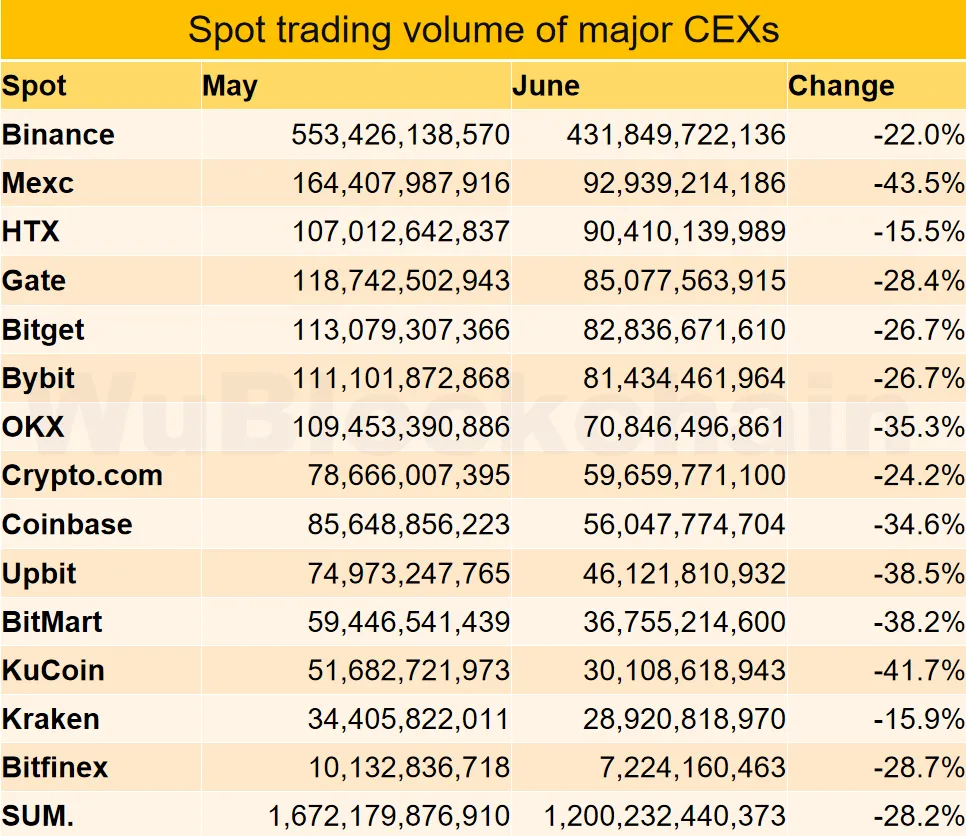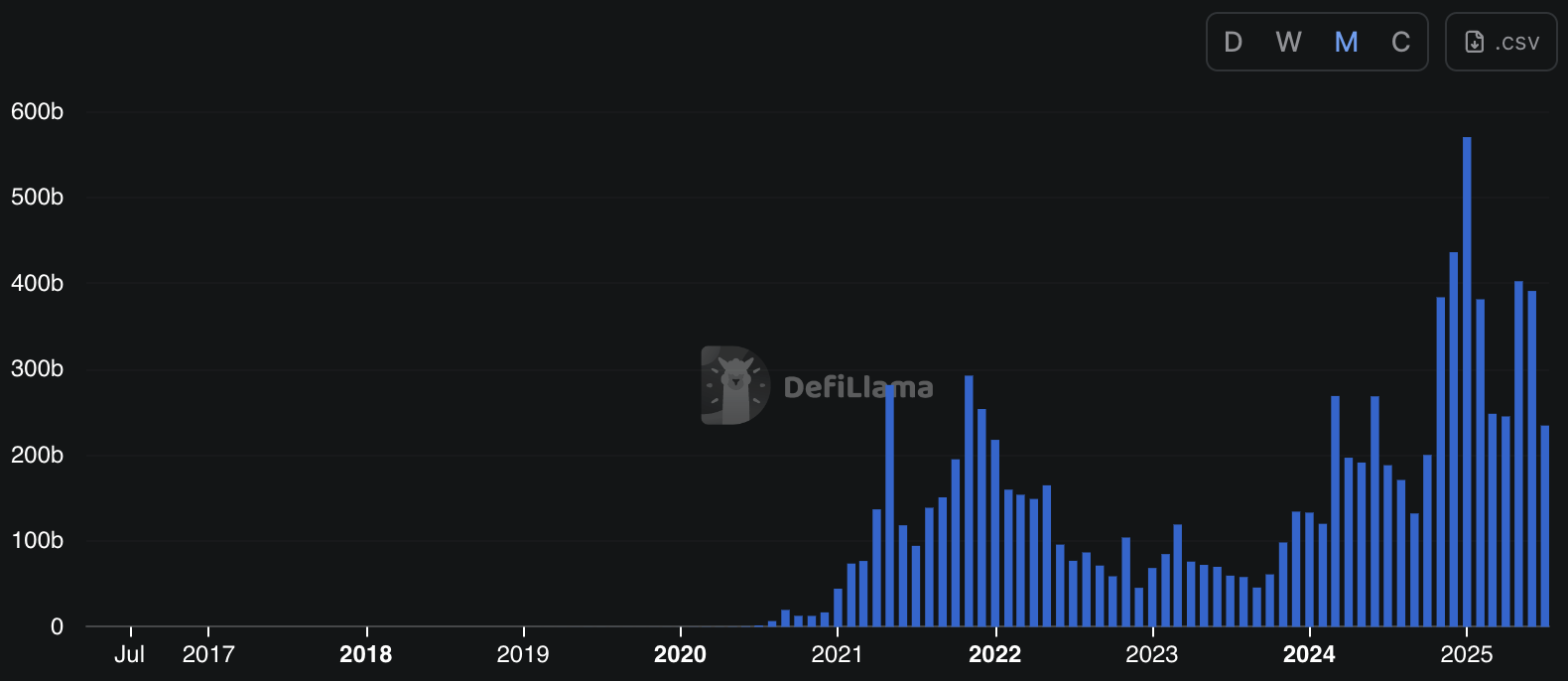Oh no, they didn’t! 😱 Binance, KuCoin, Upbit, and other major centralized exchanges are experiencing a significant drop in trading volumes, while decentralized exchanges (DEXs) are seeing a surge in popularity. 🚀
It’s like the cool kids are ditching the mainstream party for the underground rave. 🕺
CEXs Are Slowly Fading into Oblivion
In a recent report from Wu Blockchain, trading volumes on centralized exchanges (CEXs) took a nosedive in June 2025. 📉

According to the report, most major centralized exchanges experienced a significant decline in trading volumes last month. The three platforms with the steepest drops were MEXC (-44%), KuCoin (-42%), and Upbit (-39%). 😱
These exchanges are widely used by retail users in Asia, particularly in South Korea and Southeast Asia. This trend may indicate waning speculative capital in those regions. 💸
On the other hand, Binance, the largest platform by market capitalization, saw a more than 20% drop in trading volume. 😱 Although it still leads in liquidity, the decline suggests growing investor caution.
The broad-based trading volume decline in June can be attributed to several factors.
First, after the strong growth phase in early 2025, the crypto market has entered a correction period. The absence of strong catalysts such as spot Bitcoin ETFs has also led to a noticeable decline in market participation.
Second, ongoing geopolitical conflicts exert pressure on risk assets like cryptocurrencies. Investors are increasingly pulling funds out of the market in search of safer instruments such as bonds, certificates of deposit, or gold.
A Shift in User Behavior?
Another noteworthy factor is the growing capital shift toward decentralized exchanges (DEXs). A chart from DefilLama shows that DEX trading volume in June 2025 reached approximately $391 billion. Although it recorded a slight decline compared to May ($402 billion), it also showed impressive growth compared to 2024.

In addition, DEXs’ characteristics also show many benefits for users who love privacy in transactions. As proposed by CZ, the dark pool model for perpetual futures contracts is expected to reshape the confidentiality and security of DEXs.
However, it is important to emphasize that the decline in trading volume does not necessarily signal the onset of a “crypto winter” like in 2022. Instead, this could be a psychological and expectation reset period where professional investors observe and await clearer macroeconomic signals before re-entering the market.
Moreover, a large chunk of traders prefer decentralized trading platforms such as Hyperliquid.
The final months of Q3 and the beginning of Q4 will be critical, particularly as token unlock events, Layer-2 project updates, and policy developments from the U.S. and Europe gradually come into focus.
Read More
- USD CNY PREDICTION
- Will Solfart Fart Its Way to Crypto Fame? 🤔
- Oh, The Drama! Crypto Whales Evacuate as Market Prepares to Shuffle 🌪️
- Gold Rate Forecast
- Shiba Inu Shakes, Barks & 🐕💥
- Brent Oil Forecast
- Bitcoin Miners Go Green as AI Deals and Bitcoin Surge Create Perfect Storm
- Ethereum’s Rarely Seen Oversold Signal: Rebound or Just a Brief Respite?
- Silver Rate Forecast
- USD VND PREDICTION
2025-07-16 08:16